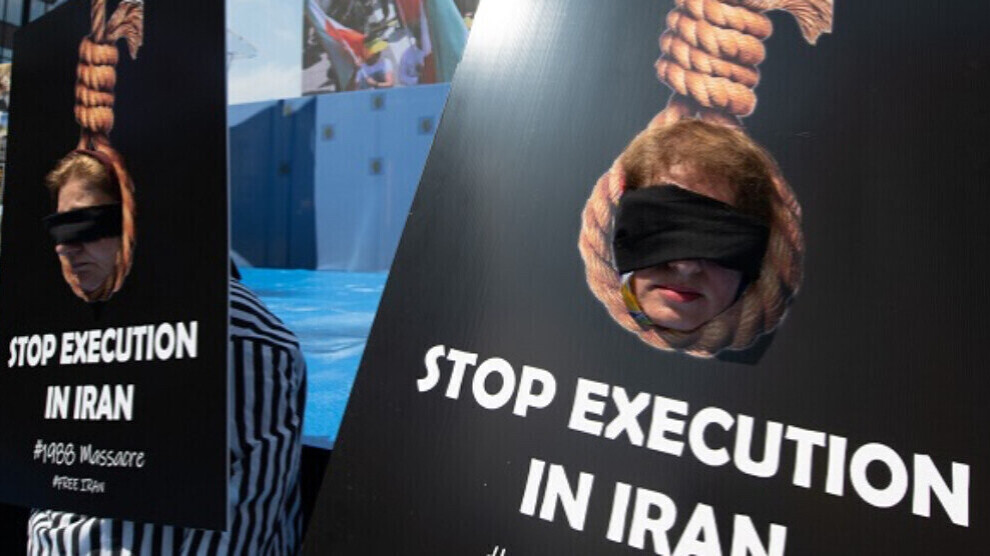Iran executes 853 people in eight-year high amid relentless repression
The number of executions in Iran in 2023 is the highest recorded since 2015 and marks a 48% increase from 2022 and a 172% increase from 2021.
The number of executions in Iran in 2023 is the highest recorded since 2015 and marks a 48% increase from 2022 and a 172% increase from 2021.

Robust international action is urgently needed to halt a horrifying surge in executions that saw Iran’s prisons transformed into sites of mass killings in 2023, said Amnesty International. In a new research briefing published today the organization highlights that at least 481 executions – more than half of the total 853 executions recorded in 2023 – were carried out for drug-related offences.
“Don’t Let Them Kill Us”: Iran’s Relentless Execution Crisis since 2022 Uprising reveals how the Iranian authorities have intensified their use of the death penalty to instil fear among the population and tighten their grip on power in the aftermath of the “Woman Life Freedom” uprising of September-December 2022. The briefing also raises the alarm over the disproportionate impact of the authorities’ lethal anti-narcotics policies on poor and marginalized communities.
The number of executions in 2023 is the highest recorded since 2015 and marks a 48% increase from 2022 and a 172% increase from 2021. Iran’s killing spree is continuing into 2024, with at least 95 recorded executions by 20 March. Execution numbers recorded by Amnesty International are minimum figures and the organization believes the real number is higher.
“The death penalty is abhorrent in all circumstances but deploying it on a mass scale for drug-related offences after grossly unfair trials before Revolutionary Courts is a grotesque abuse of power. The Islamic Republic’s deadly anti-narcotics policies are contributing to a cycle of poverty and systemic injustice, and further entrenching discrimination against marginalized communities, in particular Iran’s oppressed Baluchi minority,” said Diana Eltahawy, Deputy Regional Director for the Middle East and North Africa at Amnesty International.
Last year also saw a wave of executions targeting protesters, social media users and other actual or perceived dissidents for acts protected under international human rights law incurring charges such as “insulting the prophet” and “apostasy” as well as vague charges of “enmity against God” (moharebeh) and/or “corruption on earth” (efsad-e fel arz).
“Protesters, dissidents and members of oppressed ethnic minorities are among those executed as the authorities have weaponized the death penalty in an orchestrated bid to sow fear among the public and suppress dissent. Without a robust global response, the Iranian authorities will feel emboldened to execute thousands more people in the coming years with total impunity,” said Diana Eltahawy.
“Our shocking findings on the Iranian authorities’ ongoing assault on the right to life underscore the urgent need for the international community to press the Iranian authorities for an immediate moratorium on all executions. As the UN Human Rights Council votes this week on whether to renew the mandates of the Fact Finding Mission on Iran and the Special Rapporteur on Iran, it is vital to signal to the Iranian authorities that their abysmal human rights record will remain under international scrutiny and to ensure that an international independent investigative and accountability mechanism remains in place to collect and analyze evidence of crimes under international law.”
Revolutionary Courts issued 520 (61%) of the death sentences carried out in 2023. These courts have jurisdiction over a wide range of acts, including drug-related offences, which the authorities consider as “national security” crimes. The courts lack independence, operate under the influence of security and intelligence bodies, and routinely use torture-tainted forced “confessions” in grossly unfair summary trials to issue convictions.
Throughout 2023, in the aftermath of the “Woman Life Freedom” (Jin Jiyan Azadi) uprising of September-December 2022, the Iranian authorities also intensified their use of the death penalty as a weapon to quash dissent.
In 2023, the authorities executed six men in connection with the 2022 uprising and one man in connection with the November 2019 nationwide protests. At least a further seven people have been sentenced to death and are at imminent risk of execution in connection to the 2022 uprising and the November 2019 protests.
The rise in executions has led to prisoners on death row going on hunger strike and publicly pleading for interventions to stop their executions.
Last year also marked a shocking escalation in the use of the death penalty against child offenders, with the executions of one 17-year-old boy and four youths convicted of crimes that took place when they were under 18 years old.